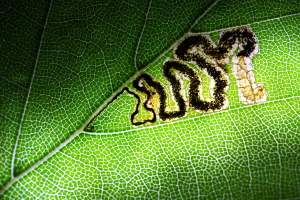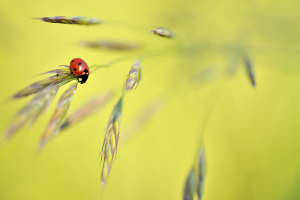In natural ecosystems, plants and insects are some of the living organisms that interact constantly in a complex way. These two groups of organisms are closely associated through mutual or antagonist relationships. Plants provide shelter, nesting site and food to insects, which are involved in pollination or plant defense. Other insects feed directly on the plant organs, reducing their ability to reproduce and their chances of survival.
 These plant-insect interactions form of dynamic systems. To reduce the impact of plant-eating insects, plants have developed many defense mechanisms, including e.g. physical barriers (e.g. trichomes) and chemical defenses (synthetic toxins, volatile secondary metabolites and other substances). In parallel, the insects have developed various strategies to overcome plant defenses, as detoxification or sequestration of toxic compounds and avoidance mechanisms. These interactions are a good example of co-evolution.
These plant-insect interactions form of dynamic systems. To reduce the impact of plant-eating insects, plants have developed many defense mechanisms, including e.g. physical barriers (e.g. trichomes) and chemical defenses (synthetic toxins, volatile secondary metabolites and other substances). In parallel, the insects have developed various strategies to overcome plant defenses, as detoxification or sequestration of toxic compounds and avoidance mechanisms. These interactions are a good example of co-evolution.
Plant-insect interactions are the subject of several research projects at the Functional and Evolutionary Entomology Unit. Research projects are based on a wide range of multidisciplinary approaches including systematics, ecology, physiology and up to the development of molecular and functional proteomic and genomic tools applied to insects studied models.
 Based on the results of more fundamental approaches, the goals of our research is to develop applied purposes such as proposing new ways of pest control (use of biological substances or specifically targeting a particular pest, thus limiting the impact on the environment, auxiliaries, human health) or an application for recovery of materials (biofuel) in a concept of sustainable development.
Based on the results of more fundamental approaches, the goals of our research is to develop applied purposes such as proposing new ways of pest control (use of biological substances or specifically targeting a particular pest, thus limiting the impact on the environment, auxiliaries, human health) or an application for recovery of materials (biofuel) in a concept of sustainable development.
